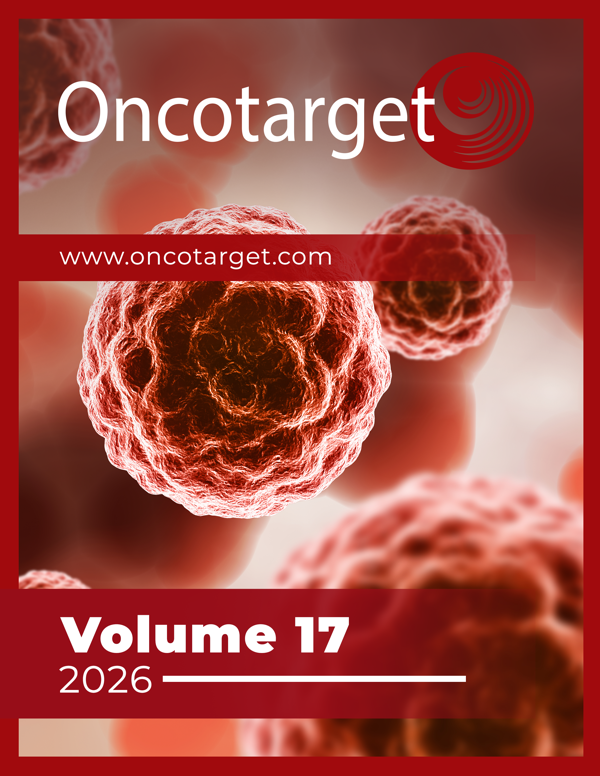Oncotarget published "RNA expression differences in prostate tumors and tumor-adjacent stroma between Black and White Americans" which reported that the authors examined RNA expression in both tumor and TAS of BA compared to WA.
After evaluating the geographical ancestry of each sample, preliminary analysis of their own RNA-seq data of 7 BA and 7 WA TAS revealed 1706 downregulated and 1844 upregulated genes in BA relative to WA PCa patients.
An assessment of published RNA-seq data of clinically matched tumor-enriched tissues from 15 BA and 30 WA patients revealed 932 upregulated and 476 downregulated genes in BA relative to WA .
When TAS and tumor epithelial cohorts were compared for the top 2500 statistically significant genes, immune responses were downregulated in BA vs WA TAS, while T cell-exhaustion pathways and the immune checkpoint gene CTLA4 were upregulated in BA vs WA tumors.
The Oncotarget authors found fewer activated dendritic cells in the tumor and more CD8 T-cells in TAS of BA versus WA PCa patients.
The Oncotarget authors found fewer activated dendritic cells in the tumor and more CD8 T-cells in TAS of BA versus WA PCa patients.
Dr. Farah Rahmatpanah and Michael McClelland from The University of California said, "Prostate cancer (PCa) of Black Americans (BA) is diagnosed at an earlier median age and more advanced stage than PCa of White American patients (WA), and has a poorer prognosis and significantly higher mortality rate."
Recent studies indicate that 35% of American PCa patients of African descent assigned to active surveillance gradually undergo aggressive treatments within 5 years due to disease progression, compared to 15% of American patients of European descent afflicted with the disease.
Using fresh frozen tissues and microarray technique the authors found that the TAS of BA patients has many down-regulated genes relative to WA patients and that many of these genes encoded proteins with functions associated with immune response.
The primary aim of this study was to uncover RNA expression differences in tumor and in TAS of BA versus WA patients, since some of these differences might contribute to the observed higher rate of aggressive PCa.
Subsequently, the authors performed RNA-seq on TAS of 9 BA and 11 WA PCa patients using FFPE tissues obtained at The University of California, Irvine, and The Medical University of South Carolina.

Figure 3: Comparative pathway analysis of significantly differentially expressed genes in BA versus WA PCa patients in tumor and tumor-adjacent stroma (TAS). (A–B) The top 2500 significantly differentially expressed genes (padj < 0.05) in BA vs WA were compared in TAS and tumor. Notable overlapping genes with the same direction of regulations (concordant) and with different direction of regulation (discordant) in tumor and TAS of BA versus WA PCa patients are shown. Each dot represents a patient. (C) Gene network analysis of concordant and discordant genes in tumor and TAS of BA versus WA PCa patients. The networks shown are among those with the highest significance of connections between molecules in the network as indicated by their score. Blue nodes indicate downregulated and red nodes indicate upregulated gene expression in TAS of BA vs WA PCa patients. Darker shades of the nodes indicate larger differential expression ratios. Dotted lines represent indirect interactions while solid lines represent direct interactions. (D) Comparative pathway analysis of the top 2500 significantly differentially expressed genes (padj < 0.05) in BA and WA in both tumor and TAS cohorts with concordant and discordant regulations. The top overrepresented signaling pathways (-log10 p value > 1.30) between TAS and tumor in BA versus WA PCa samples among downregulated (left) and upregulated (right) genes are shown. The heat map is generated from the –log10 p values, using MeV (http://mev.tm4.org). n is the number of genes. (E) CIBERSORT analysis of 22 immune cell types in tumor epithelia of BA (n = 15) and WA (n = 30) (p < 0.05) and TAS of BA (n = 7) and WA (n = 7) PCa patients.
They determined differences in RNA expression of tumor-enriched and TAS PCa samples from BA versus WA patients.
The Rahmatpanah/McClelland Research Group concluded in their Oncotarget Research Output that another limitation is that the TAS and tumor epithelial were drawn from two different cohorts.
Furthermore, neither their TAS dataset nor the external dataset GSE54460 contains information on parameters that may affect gene expression and disease outcome, such as smoking status.
However, their exploratory transcriptome analysis represents an important step in understanding the underlying biology of prostate tumor epithelium and TAS of BA and WA patients.
This study indicates striking differences in immunoregulatory gene activities in TAS and tumor epithelium of BA compared to WA PCa patients.
Subsequent studies will focus on whether these differences contribute to the worse prognosis of PCa in BA patients and whether therapeutic interventions can be developed that exploit these differences.
DOI - https://doi.org/10.18632/oncotarget.28024
Full text - https://www.oncotarget.com/article/28024/text/
Correspondence to - Farah Rahmatpanah - [email protected] and Michael McClelland - [email protected]
Keywords - prostate cancer, tumor-adjacent stroma, African ancestry, European ancestry, RNA-seq analysis
About Oncotarget
Oncotarget is a bi-weekly, peer-reviewed, open access biomedical journal covering research on all aspects of oncology.
To learn more about Oncotarget, please visit https://www.oncotarget.com or connect with:
SoundCloud - https://soundcloud.com/oncotarget
Facebook - https://www.facebook.com/Oncotarget/
Twitter - https://twitter.com/oncotarget
LinkedIn - https://www.linkedin.com/company/oncotarget
Pinterest - https://www.pinterest.com/oncotarget/
Reddit - https://www.reddit.com/user/Oncotarget/
Oncotarget is published by Impact Journals, LLC please visit https://www.ImpactJournals.com or connect with @ImpactJrnls
Media Contact
[email protected]
18009220957x105




